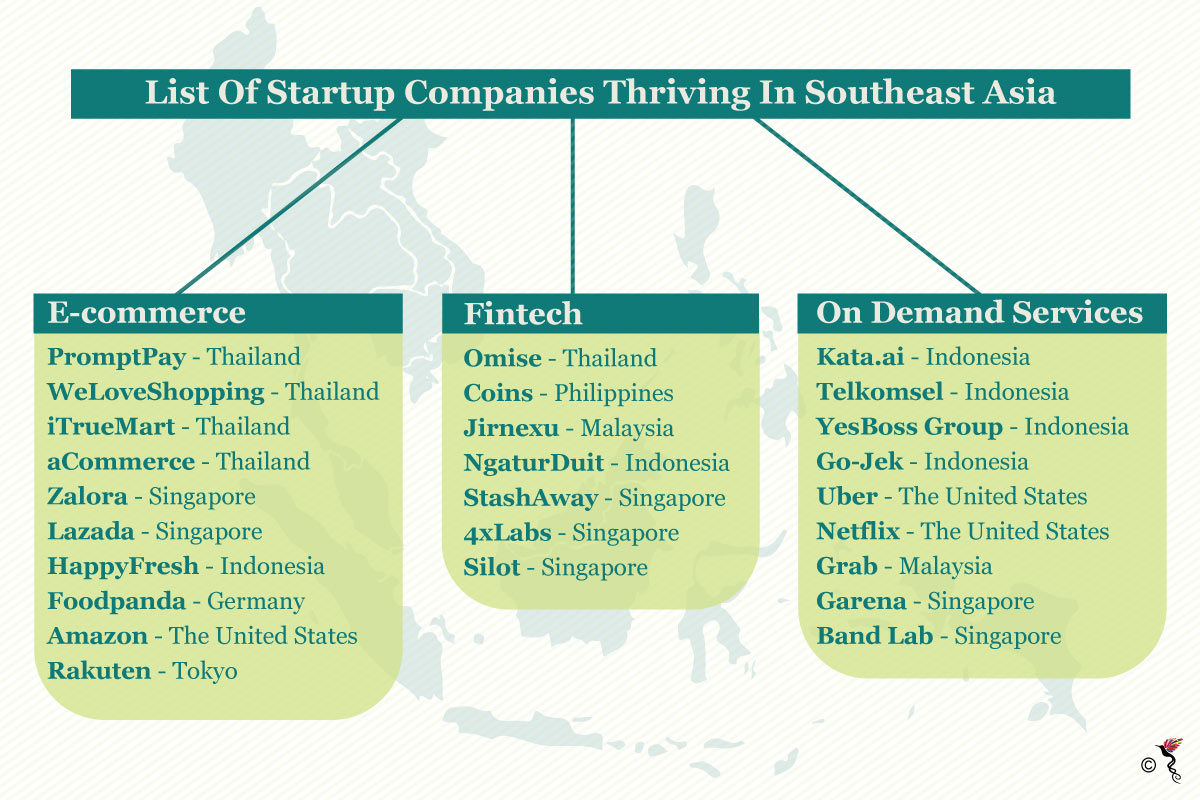The startup sector has exploded globally with investors on the lookout for the next "Facebook". This has inspired technology entrepreneurs to create their own companies and sell their ideas to the world in hopes of being the next Mark Zuckerberg. While the Silicon Valley may still be the nexus for startups in the West but due to the rapid development in Southeast Asia, many entrepreneurs are considering building their brands and businesses within the region as a more cost-effective alternative.
At the same time, the improving startup ecosystem in Southeast Asia is nurturing more homegrown startups, many of which have become successful over recent years. Several of these success stories include BandLab (Singapore), Grab (Malaysia), Go-Jek (Indonesia) and MetroDeal (Philippines). The reason that startup culture was able to take so quickly within the region is mainly due to the fast ascent of technological development, but there are also other major factors which contribute to ASEAN's rise as the next "Mecca" for startup businesses.

List of thriving startups in Southeast Asia.
The vibrant business environment within ASEAN is supported by each individual government, which offers a gateway for new businesses to grow. Business prospects are also as diverse as the demographics within the region as entrepreneurs are able to engage with a multicultural audience, alongside an ever growing potential audience structure due to the increasing digital literacy among Southeast Asians.
Among the types of startups that are thriving in Southeast Asia include e-commerce, Fintech and on-demand services. The e-commerce sector is gaining a lot of traction within the region. According to Frost and Sullivan, e-commerce revenues are expected to surpass 25 billion dollars by 2020. Meanwhile, the region is currently populated by over 630 million people and is the seventh largest economy worldwide. This alone has provided a compelling reason for young entrepreneurs to jump onto the startup bandwagon and make their dreams of owning their own business a reality.
However despite this setback, the ASEAN region shows a staggering growth in numbers when it comes to adapting to the transformative technological landscape. This drives demand for Fintech – also known as financial technology – which is a field of startups that provide advanced technological services in finance and banking to accommodate the rapid digitisation of businesses in countries such as Malaysia, Indonesia, Singapore and the Philippines. According to Forbes, an economic growth driven by a growing, wealthy middle-class across the ASEAN nations with 70 percent of the population being younger than the age of 40 is ripe for an ecosystem that can handle the booming financial technology sector.
Finally there is on-demand services, the most well known startups provide entertainment on-demand services such as Netflix (USA), however within ASEAN as well there are extremely prominent startups that have now become household names within the region. These startups include iflix from Malaysia, BandLab and Zalora from Singapore, as well as Go-Jek from Indonesia to name a few. Businesses like BandLab, which presents its users with a social platform to create and share music whilst other on-demand service providers such as Grab and Go-Jek are ride-hailing mobile applications which have become overnight sensations since their incorporation. BandLab which owns Swee Lee – Asia’s largest online music retailer – just purchased a 49-percent stake in Rolling Stone last year.
Grab, on the other hand, has since surpassed it’s ride-hailing competitor – Uber – in almost every ASEAN country except for the Philippines. The brand has become synonymous with cost effective transport within ASEAN that is accessible to everyone.
Startups within the Southeast Asian region have also become an attractive prospect for foreign investors, however there has been a slow migration from the West with investors still seeking for the right investment opportunities in Southeast Asia. Despite this, ASEAN is attracting investments from Asian-based businesses such as Alibaba Group, Expedia, Tencent Holdings and Amazon.
